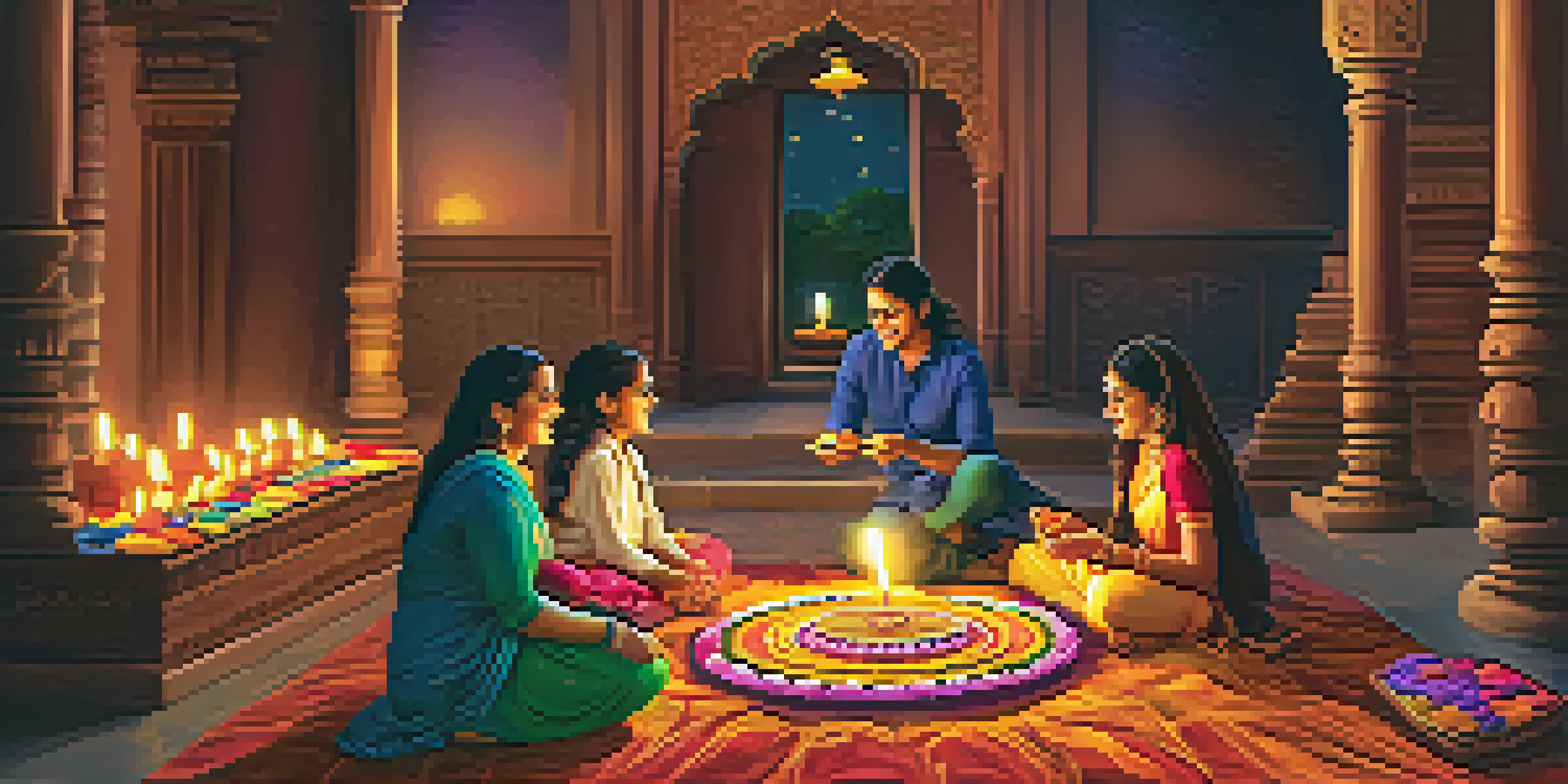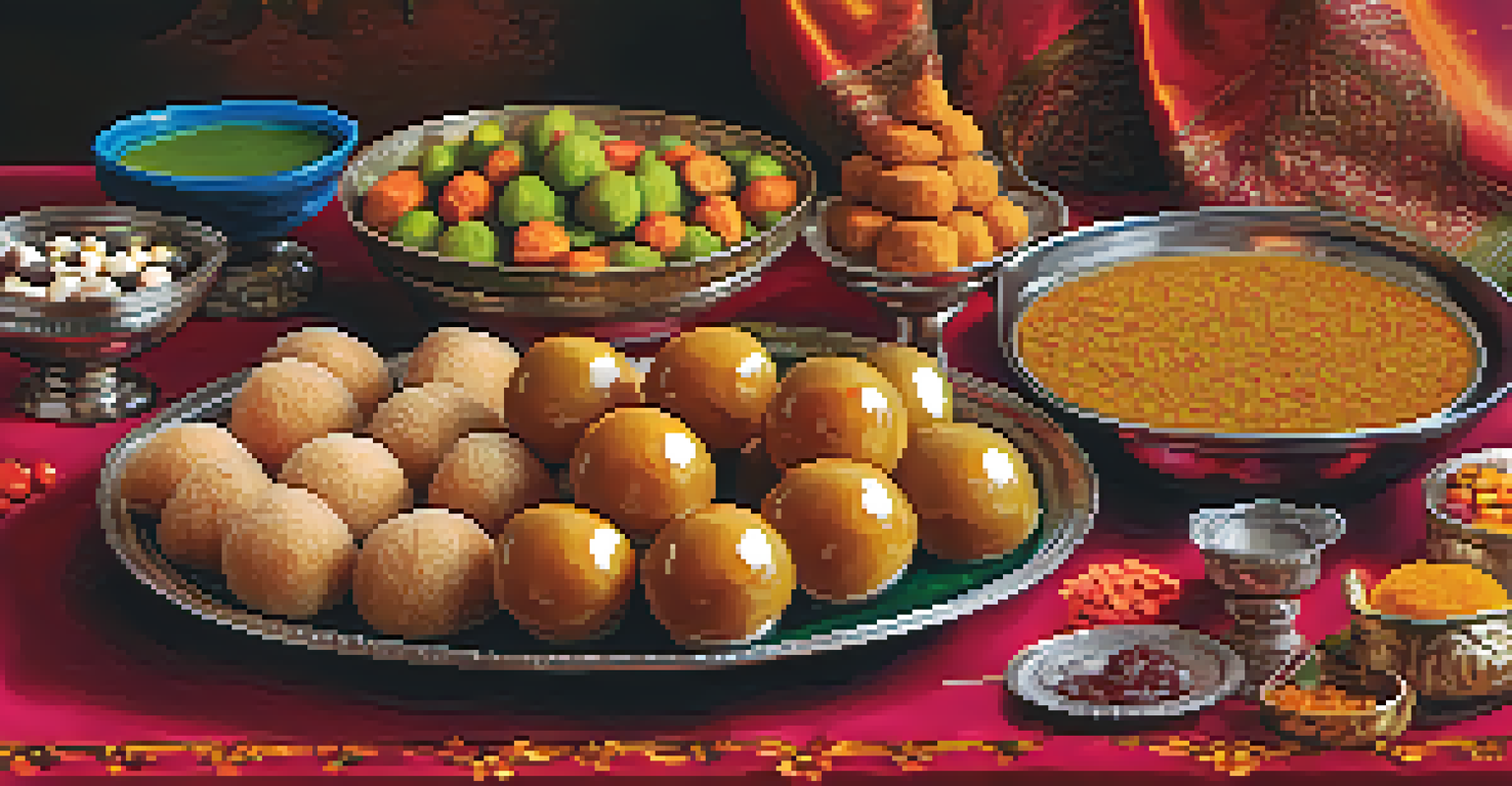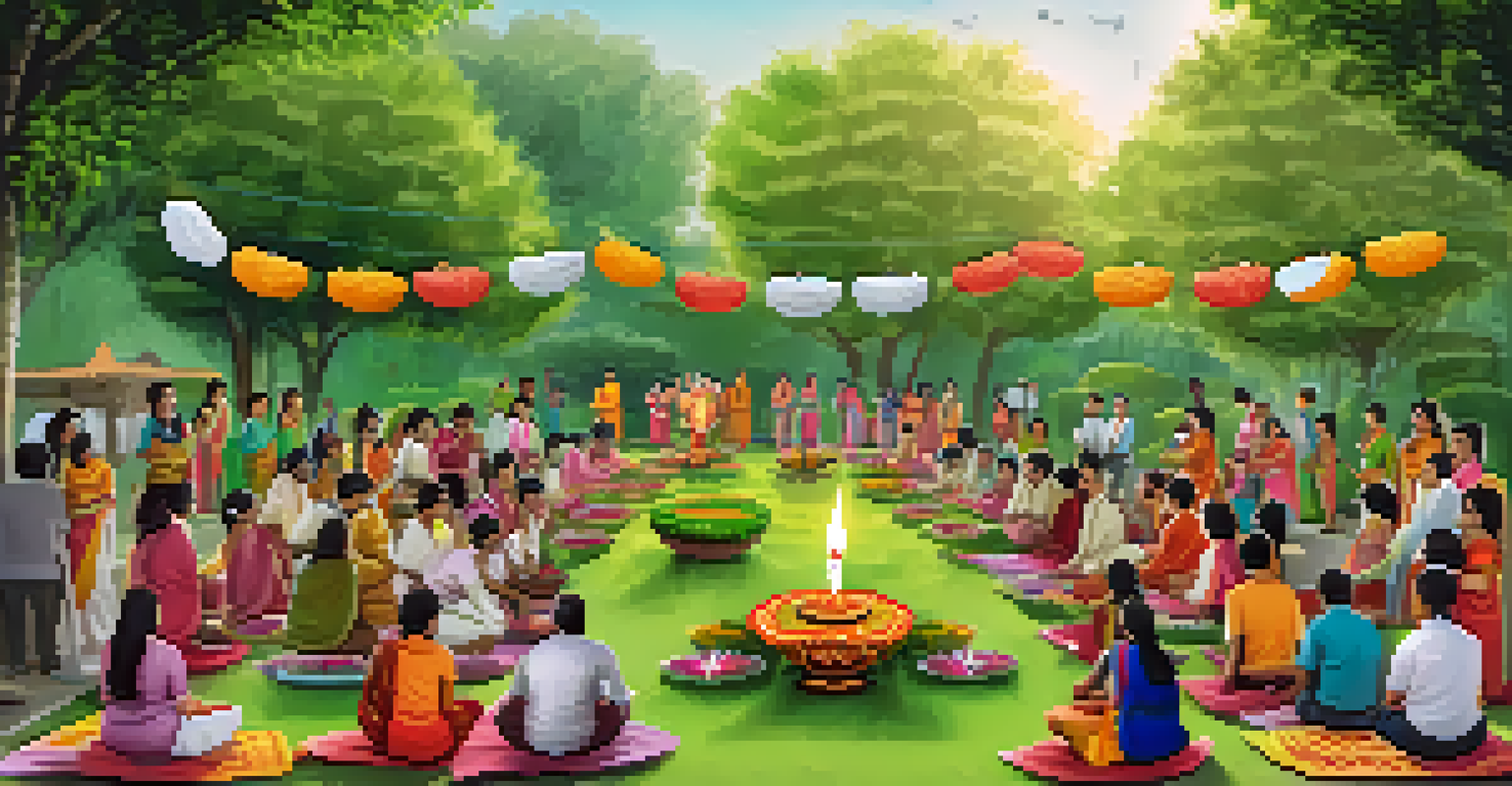Learn About the Rich Heritage of Diwali Celebrations

The Significance of Diwali in Indian Culture
Diwali, often referred to as the Festival of Lights, holds immense significance in Indian culture. It symbolizes the victory of light over darkness and good over evil. This festival is not just a single day of celebration but encompasses a series of events that vary across regions and communities in India.
Diwali is not just a festival, but a celebration of life, hope, and the triumph of good over evil.
Traditionally, Diwali marks the return of Lord Rama to Ayodhya after defeating the demon king Ravana. This story from the ancient epic Ramayana resonates with the values of righteousness and triumph. Families come together to celebrate this journey with joy and festivity.
Moreover, Diwali also has connections to Goddess Lakshmi, the deity of wealth and prosperity. Many people clean and decorate their homes to welcome her, making the festival a blend of cultural and spiritual practices.
The Rituals and Customs of Diwali
Diwali is a tapestry of rituals and customs that vary widely across different communities. One of the most common practices is the lighting of diyas, or oil lamps, which illuminate homes and streets, creating a magical atmosphere. These lights symbolize hope and the dispelling of ignorance.

Another cherished tradition is the creation of rangoli, colorful patterns made on the floor using colored powders, rice, or flower petals. These designs not only beautify homes but also invite positive energy and good spirits.
Diwali: A Festival of Lights
Diwali symbolizes the victory of light over darkness and is celebrated with various rituals and customs across India.
Families also partake in puja, a ceremonial worship, to seek blessings from deities. This is often accompanied by the exchange of sweets and gifts, reinforcing the bonds of love and generosity among family and friends.
Delicious Treats: The Flavors of Diwali
No celebration is complete without food, and Diwali is a feast for the senses. A variety of sweets and savory snacks are prepared, showcasing the diversity of Indian cuisine. From rich, syrup-soaked gulab jamun to crispy samosas, the treats are as colorful as the festival itself.
Festivals are a time to reflect on the blessings in our lives and to spread joy and goodwill to others.
Families often spend days preparing these delicacies, passing down recipes through generations. This culinary tradition not only brings people together but also serves as a way to share joy and hospitality with neighbors and friends.
Moreover, sharing these treats is a way to spread happiness during the festival. The act of giving sweets symbolizes goodwill and strengthens social ties, making Diwali a truly communal celebration.
The Role of Fireworks in Diwali Celebrations
Fireworks have become synonymous with Diwali, adding an element of excitement and awe to the festivities. The bright colors and loud sounds create a festive atmosphere, symbolizing joy and celebration. It's a way to express happiness and mark the occasion with grandeur.
Historically, fireworks were believed to ward off evil spirits, enhancing the festive spirit. Families gather to watch dazzling displays of light, creating lasting memories together. This tradition has become an integral part of the celebration in many regions.
Culinary Delights of Diwali
Food plays a central role in Diwali celebrations, with families preparing and sharing a variety of sweets and snacks.
However, it's essential to balance enjoyment with safety and environmental considerations. Many communities are now opting for eco-friendly alternatives to minimize pollution while still embracing the joy of fireworks.
Diwali Around the World: Global Celebrations
While Diwali is deeply rooted in Indian culture, its celebration has transcended borders and is embraced globally. From the vibrant streets of London to the bustling neighborhoods of New York, various communities come together to celebrate this festival of lights.
In countries like Nepal, Fiji, and Trinidad, Diwali is celebrated with unique local customs and flavors, showcasing the adaptability of this festival. Each place adds its twist, enriching the overall heritage of Diwali.
These global celebrations foster cultural exchange and unity among diverse communities, reminding us that the essence of Diwali—joy, hope, and togetherness—knows no boundaries.
The Spiritual Aspects of Diwali
Beyond the festivities, Diwali carries profound spiritual significance. It serves as a time for reflection, introspection, and renewal. Many people engage in meditation and prayers during this period, seeking inner peace and clarity.
The festival encourages individuals to let go of negativity and embrace positivity, aligning with the theme of light conquering darkness. This aspect of Diwali invites everyone to contemplate their personal journey and strive for growth.
Embracing Eco-Friendly Practices
There is a growing trend towards sustainability during Diwali, with families adopting eco-friendly practices to celebrate the festival.
Additionally, it is a moment for gratitude, where families express appreciation for their blessings and the support of their loved ones, reinforcing the values of compassion and togetherness.
Sustainability and Eco-Friendly Diwali Practices
In recent years, there has been a growing awareness of sustainability during Diwali. With the impact of pollution and environmental degradation, many families are opting for eco-friendly practices to celebrate the festival.
This includes using biodegradable decorations, natural colors for rangoli, and plant-based diyas. Additionally, some communities are organizing events to promote a green Diwali, encouraging everyone to participate in tree planting and clean-up drives.

These initiatives not only help preserve the environment but also instill a sense of responsibility and care for the planet, ensuring that future generations can enjoy the beauty of Diwali.